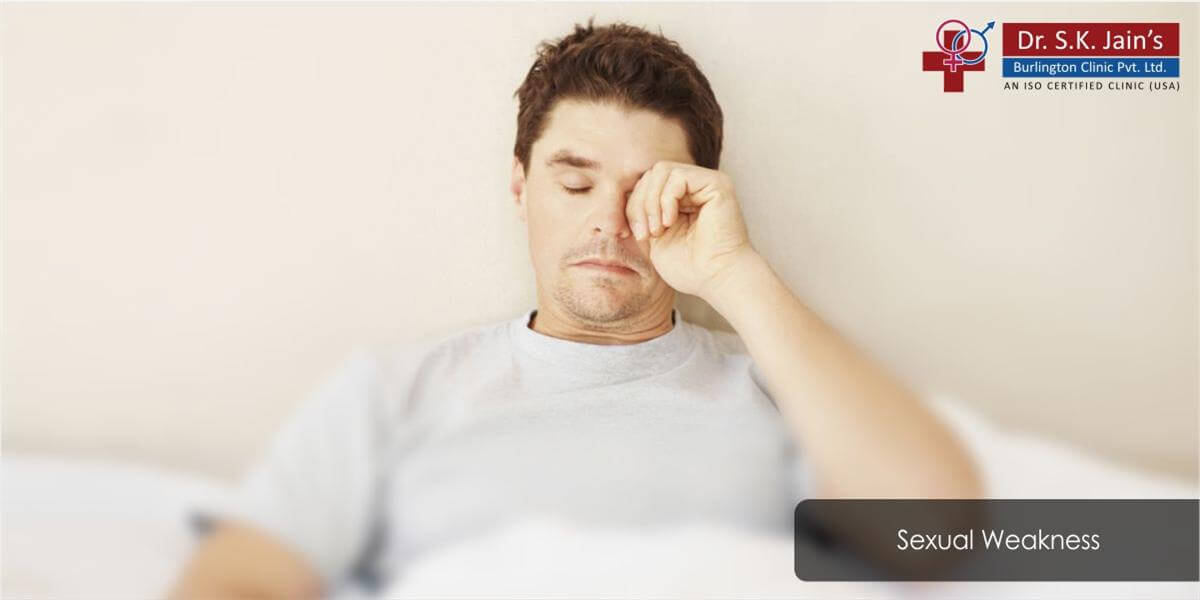
Sexual difficulties can begin early in a person's sex life or they may develop after an individual has previously experienced enjoyable and satisfying sex. Such a problem may develop gradually over time or may occur suddenly as a total or partial inability to participate in one or more stages of the sexual act. The causes of sexual difficulties can be physical, psychological, or both. Sexual weakness or Erectile Dysfunction, in which a man is unable to attain an erect penis that is rigid enough for sexual penetration or sexual satisfaction, erectile dysfunction (ED) affects the lives of many men and their partners to one degree or another.
Sexual dysfunctions are more common in the early adult years, with the majority of people seeking care for such conditions during their late twenties through thirties. Men may also notice that orgasms are less intense, the volume of ejaculate is reduced and recovery time increases between first and second erections.
Erections may take longer to develop and may not be as rigid or may require more direct stimulation to be achieved. It can interfere with a man's self-image as well as his and his partner's sexual life. Erectile dysfunction may also be a sign of a physical or psychological problem that requires treatment.
Erectile dysfunction was once a taboo subject, but more men are seeking help. Doctors are gaining a better understanding of what causes erectile dysfunction and are finding new and better treatments
SIGNS AND SYMPTOMS
Patterns of erectile dysfunction include:
Occasional inability to obtain a full erection
Complete inability to achieve an erection
Taking a longer time to reach an erection
Less firm erection
Loss of force in ejaculation
Decrease in volume of semenLosing erection quicker after orgasm
An increasing amount of time it takes to get another erection
Inability to maintain an erection throughout intercourse
MALE REPRODUCTIVE SYSTEM
When a man becomes sexually aroused, nerve impulses cause the blood flow to the cylinders to increase about ten times than normal amount and continued sexual arousal or excitation maintains the higher rate of blood flow, keeping the erection firm. After ejaculation, or when the sexual excitation passes, the excess blood drains out of the
spongy tissue, and the penis returns to its non-erect size and shape
PHYSICAL CAUSES
· Nervous debility (Lack of blood flow to blood vessels into the penis during erection)
· Venereal diseases (Sexually Transmitted Diseases)
· Hypertension (High Blood Pressure)
· Diabetic (Nerve damage from longstanding diabetes)
· Blood leakage inside the blood vessels of penis
· Hormonal disorders (decreased libido can because of low testosterone or androgen)
· Cardiovascular disorders affecting the blood supply to the pelvis
· Problems with an enlarged prostate gland
· Alcoholism and other forms of drug abuse (Chronic use of alcohol, narcotics, marijuana, Excessive use of tobacco and Ghutka [crushed tobacco] betel nut, can damage penile arteries)
· Certain prescription medications (Tranquillizers, antidepressants, antihistamines, some psychotherapeutic drugs and medications to treat high blood pressure antihypertensive, stimulants)
· Some birth defects
NONPHYSICAL CAUSES
· Psychological problems such as depression
· Negative feelings - that are expressed by sexual partners
· Stress
· Anxiety
· Fatigue
· Sexual fears or guilt
· Past sexual trauma
WHEN TO SEEK MEDICAL ADVICE
It's normal to experience erectile dysfunction on occasion. But if erectile dysfunction lasts longer more than two months or is a recurring problem, see our doctor who specialises in erectile problems, he can determine the underlying cause or causes of erectile dysfunction and then help you find the right type of treatment.
Although you might view erectile dysfunction as a personal or embarrassing problem, it's important to seek treatment. In 98% cases, erectile dysfunction can be successfully treated.
Our goal at “Dr.S.K.Jain’s Burlington Clinic (P) Ltd Lucknow
”in valueable guidance under of Dr.SARANSH JAIN
is to restore a healthy physical and emotional outlook to the patient and his partner using the brilliant medicinal asset of Ayurvedic and modern medicines Medicine and consequently improve their ultimate satisfaction with successful treatment of SEXUAL WEAKNESS.
Research studies have now finally shown that impotence has a bodily (or physiological) cause in nearly 90% of cases and like most other physiological difficulties, impotence is eminently curable. It is quite regrettable that over and over again the responsibility for this is put on the woman and she is labelled 'frigid' instead of the man addressing his difficulty.